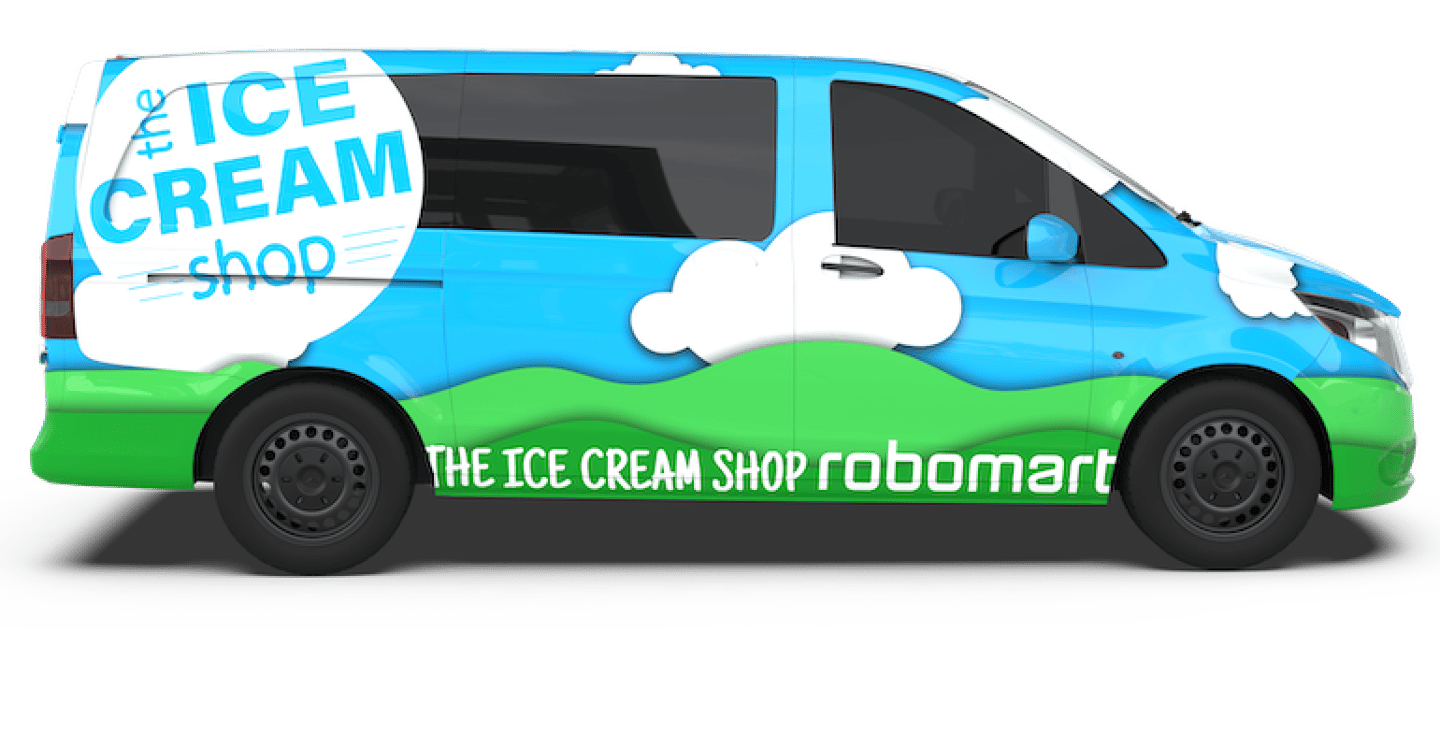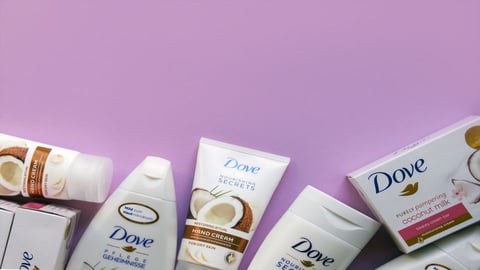Forget Ice Cream Trucks and Say Hello to Robomarts, Unilever’s Newest Pilot
Kids jump toward the front door at the first hint of the ice cream truck jingle. Will Robomarts have the same effect?
Unilever is partnering on a pilot program that will allow consumers to have ice cream delivered via a fleet of Robomarts — branded vans stocked with products from companies such as Ben & Jerry’s, Breyers, Good Humor, Magnum ice cream, and Talenti — offered under its virtual storefront, The Ice Cream Shop.
CGT spoke with Russel Lilly, general manager, Unilever North American Ice Cream, about the new venture, who says that Robomart has brought to life “a unique and innovative shopping experience that brings the store to the shopper — not the other way around.”
How It Works
Consumers can place their order using Robomart’s proprietary app and one-tap technology. Once it arrives, they can swipe across their app to open Robomart's door — a human-free experience (except for the driver) that requires no physical card swiping at checkout.
Lilly says the app’s hailing capabilities and self-checkout technology will provide consumers with a redefined shopping experience that is fast, frictionless, and simple.
“Not only does the innovation include digital touchpoints, like its RFID-based checkout-free system, but it is the first physical manifestation of Unilever Ice Cream’s virtual storefront,” adds Lilly, stating the initiative “brings the company’s digital storefront to life in a new and exciting way.”
Meeting Changing Consumer Demands
According to Lilly, consumers are more digitally savvy than ever, always looking for new ways to interact with their favorite brands. Following decades of innovation, starting with the launch of the first Good Humor ice cream truck in the 20’s, Lilly says Robomart brings together “the joy of browsing the traditional ice cream truck and the technology of the 21st century.”
Robomarts deliver store products directly to homes, cutting out the need for consumers to shop on a website, create a basket, check out with a credit card, select a delivery window, and communicate with delivery drivers.
Lilly added the new technology allows the company to remain true to its roots while modernizing the business to provide ice cream fans with the digital, experiential, and seamless experience they are in search of.
Robomart CEO and co-founder Ali Ahmed stated the initiative puts a spin on the classic ice cream truck by bringing it to consumers on-demand in as little as two minutes.
Ahmed, who worked for Unilever in the past within its brand management team, said the rollout brings to life the original vision he had with Robomart’s co-founders Tigran Shahverdyan and Emad S. Rahim: “The Everywhere Store — the fastest and most accessible way to get all your essentials.”
According to Ahmed, Robomart first launched in Los Angeles in June 2021 and, on average, receives 2.3 delivery requests per week. Earlier this year, the company was issued a patent for its one-tap store-hailing and checkout-free technology.
Unilever’s Continued Ice Cream Innovation
On-the-move ice cream isn’t the only initiative Unilever is working on within its frozen treat portfolio. The company recently announced it is launching two pilots to trial warmer ice cream freezer cabinets to reduce energy use and greenhouse gas emissions by approximately 20% – 30% per freezer without sacrificing the quality of the ice cream.
According to the company, emissions from retail ice cream freezers account for 10% of its value chain greenhouse gas footprint. As part of Unilever’s Climate Transition Action Plan, the company is looking to achieve zero emissions from its operations (scope 1 & 2) by 2030, halving the full value chain emissions of its products (per consumer use) by 2030, and achieving net zero emissions across Unilever’s value chain by 2039.
In 2021, Unilever announced its ice cream factory in TaiCang, China, joined the Lighthouse Network, the World Economic Forum’s community of manufacturing sites, which deploy tech that transforms business operations through innovations and sustainable practices, and maximizes efficiency. This the third Unilever factory to achieve this status.
Matt Close, president, ice cream, Unilever said the pilots will provide valuable information on how much energy the company can save and how its ice cream products perform in warmer freezers to ensure it delivers “the same great-tasting ice cream.”






